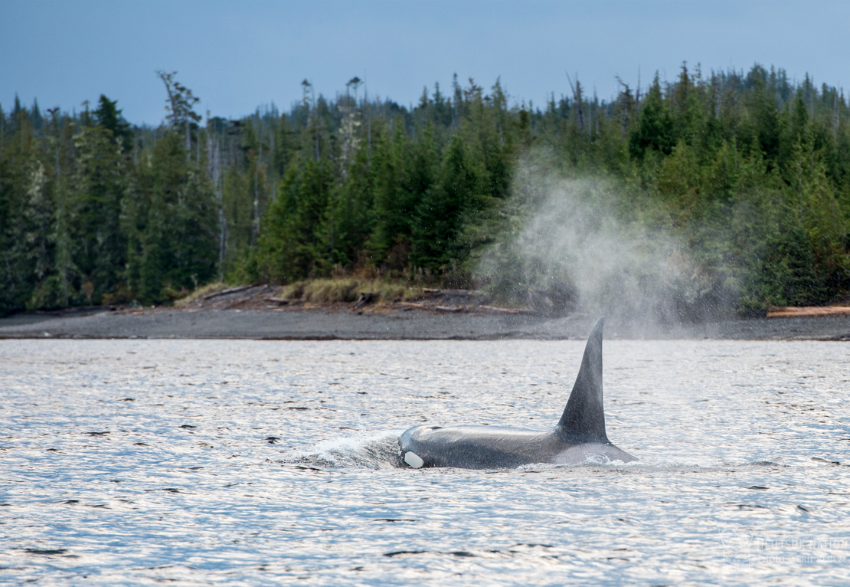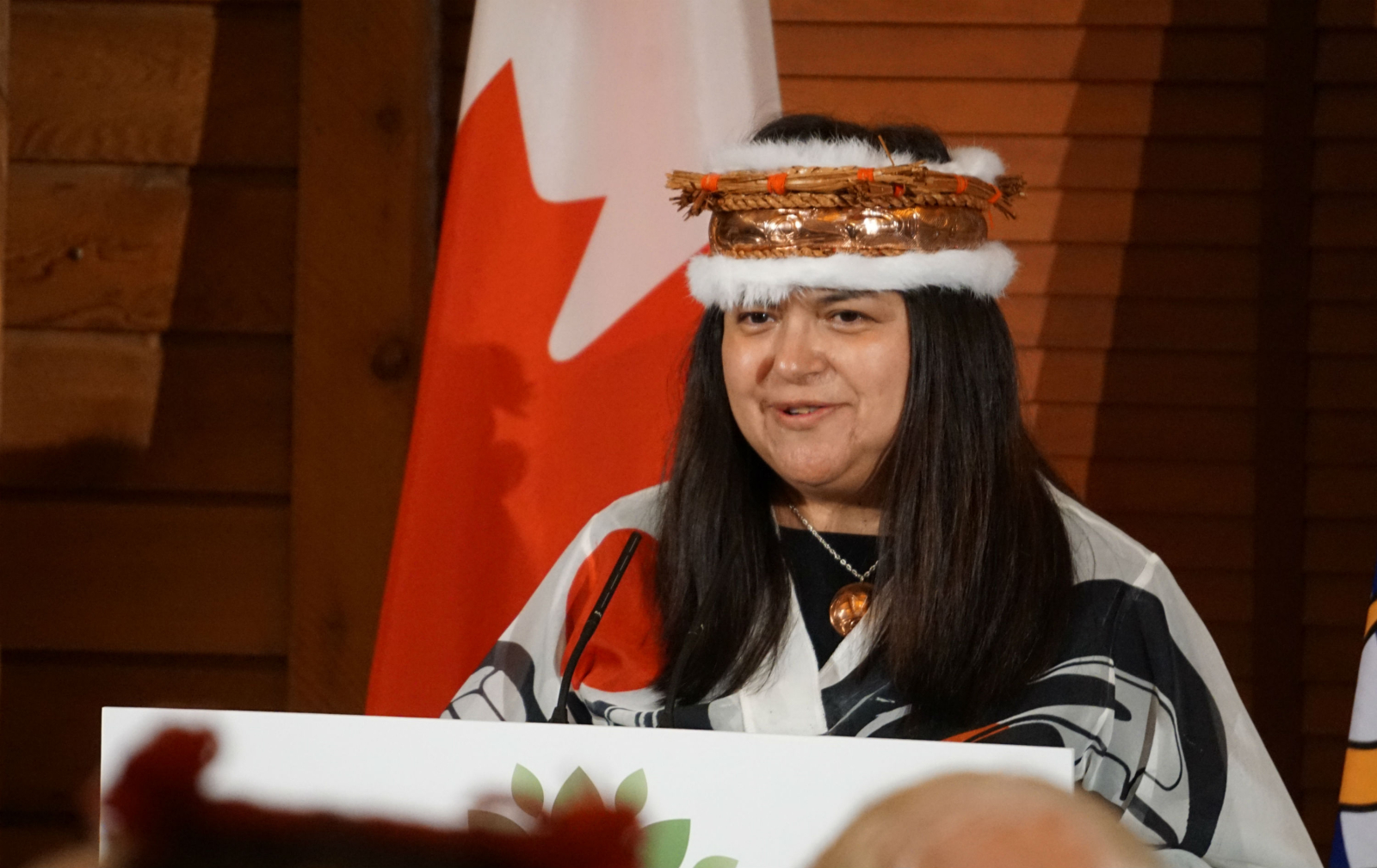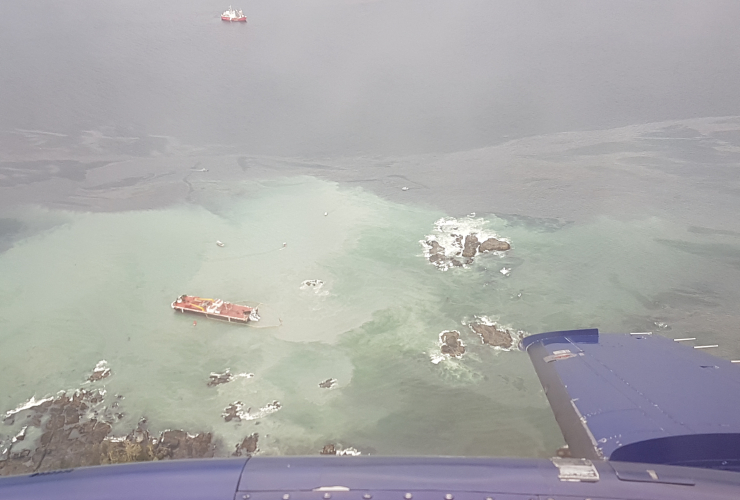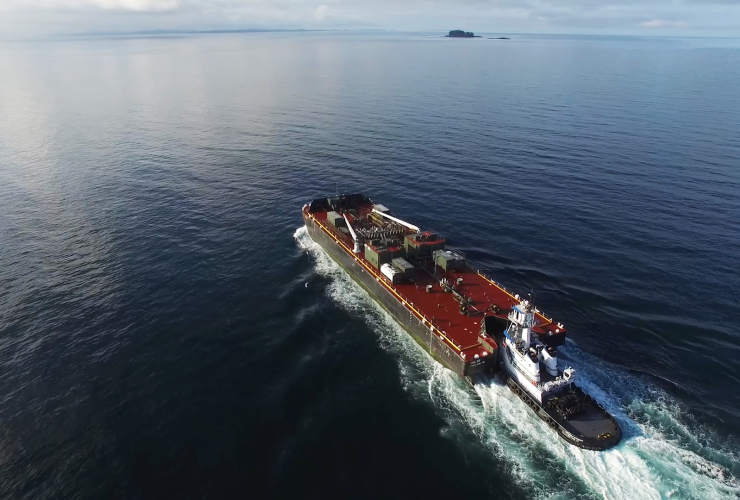The federal government celebrated a small victory on Wednesday afternoon as first responders indicated that oil removal from the sunken vessel responsible for a devastating diesel spill in British Columbia's Great Bear Rainforest has officially been completed.
In his first formal press release issued since a 10-tonne tug-and-barge unit ran aground in the Seaforth Channel nearly two weeks ago, Fisheries and Oceans (DFO) Minister Dominic LeBlanc said he was "pleased" to confirm the latest progress, and announce that removing the submerged tug boat will be among the next steps in cleanup as shoreline crews remediate areas affected by diesel that escaped containment efforts from the spill.
"The Canadian Coast Guard and their partners have worked diligently throughout the environmental response and continue to do so," he said. "In addition, all efforts are being made to identify and address any long-term effects this incident may have caused."
LeBlanc said the federal government would remain on site even after the salvage operation near the remote First Nations community of Bella Bella, B.C. is completed to ensure that any effects of the pollution are "properly dealt with." He admitted that marine safety in Canada could be improved, but did not — as many critics have called for — provide any information on when the promised Liberal crude oil tanker ban for B.C.'s northern coast would be coming into effect.
"I acknowledge that more needs to be done to improve marine safety, and I am committed to continuing this work with Minister Garneau to fulfill this mandate," he said. "We remain committed to sharing the results of the ongoing environmental testing on the surrounding marine environment and wildlife, and will keep updating the Heiltsuk First Nation and the public with new information as it becomes available."

First Nation "shocked" by DFO statement
Since Oct. 13, when the Texas-based Kirby Corp.'s vessel went under, spilling up to 200,000 litres of diesel into the waters of the rare and sensitive coastal temperate rainforest ecosystem, the Heiltsuk First Nation have criticized emergency response as "poorly co-ordinated" and "nightmarish."
More than half of their harvesting clam beds had been shut down before all first responders had even arrived on the scene, and since then, oil slick has escaped through failed booming efforts, coated beaches and at least two birds, and contaminated the waters where vulnerable herring, salmon, and orcas swim daily. Last week, one first responder even came close to sinking his own boat, and stormy weather shut down clean up operations on at least four days.
When asked if the government could still tout its response system as "world class" after so many mishaps, whether it would be investigating its own spill response in order to determine how it could do better, or whether this spill response was indicative of how response would take place in the event of future tanker spills, DFO did not respond.
In essence, said Heiltsuk Chief Marilyn Slett, it's far too early for celebration, and the federal government has a long way to go. She was "shocked" by the minister's statement indicating that progress had been made, and even more furious that LeBlanc has yet to be in contact with the leaders of her community.
"We're so angered by that," she told National Observer. "Right now we don't see an end in sight. There's been so much concern expressed by our community around the long-term effects on the clam fishery and other species that we harvest out there, and to make it sound like there's progress being made in that area is so far from the truth.
"I think the minister has to come out to Bella Bella and take a look at what we're dealing with here. He couldn't be further out of synch with us."
Booms and skimming vessels remain at the site of the spill to provide whatever containment services are required as divers collect high-definition imagery of the sea floor surrounding the casualty. Sampling teams are gathering tissue, sediment, vegetation and water samples in the area to assess the damage, and sediment samples collected so far did not exceed limits for the protection of wildlife.
But more than 90,000 litres of diesel remains unaccounted for, some which first responders believe is trapped up to 20 centimetres below the surface of shorelines where it has washed up. The Heiltsuk have now been joined in their advocacy for a tanker ban and integrated spill response system by the Coastal First Nations, the Gitga'at First Nation, environmentalists and politicians.
British Columbia's Opposition New Democrat Leader John Horgan called for better spill response capacity in the province's central coast in a letter to Prime Minister Justin Trudeau after visiting the spill site late last week, and Premier Christy Clark said shortly after the spill that the federal government has not done enough to provide adequate spill response capacity on the West Coast.
"DFO wasn't even on site after the spill, it was days before they arrived in the community," Chief Slett criticized. "We haven't even talked to the minister. He hasn't reached out to the Heiltsuk. It's just dismaying."

— with files from Canadian Press.
I scrutinize the main stream
I scrutinize the main stream media for mention of the Bella Bella spill and there is none there. How handy for the federal government and DFO. LeBlanc and Trudeau should have visited the site of the spill and the containment measures should have been much better. If this is the kind of response that can be expected in the case of an accident it is truly inadequate. They should be moving ahead with the tanker ban on the west coast and if not BC should be very angry because it is being sacrificed to keep Alberta and Saskatchewan and the oil corporation happy.
THE BELLA BELLA LESSON...
THE BELLA BELLA LESSON...
Does this Bella Bella spill incident provide a clear signal that First Nations should manage a significant part of the coastal community spill cleanup/rescue infrastructure…Look at their contribution in past marine disasters such as the Queen of the North and MV Leviathan II, whale watching vessel capsized.(Oct 2015), incidents, etc.,etc…
There is no option but to continue carrying supplies to remote coastal communities with tug managed barges .
However when it comes transporting bulk quantities of bitumen we can ,and must , exclude the much larger ocean bound ,oil laden vessels from our inlets and narrow passages…such as in Douglas Channel and the Salish Sea(Island passes)…We have an opportunity now to ‘correct’ the Enbridge and Kinder Morgan ill-conceived marine shipping proposals …while relying on improved ‘local spill’ handling for the smaller oil laden barges.
Until we can eliminate human error we must do our best to minimize the probability of a ‘tanker-size’ spill in our busy, environmentally sensitive ,multi-billion dollar revenue generating waters…by mandating that the larger tankers are prevented from ‘sailing’ in our tricky island bound waters…and restrict them to open sea terminal locations…such as Port Simpson.
Carl Shalansky, P. Eng. (Retired)
Blog: https://redfern3359.wordpress.com/
(604) 986-4657






Comments